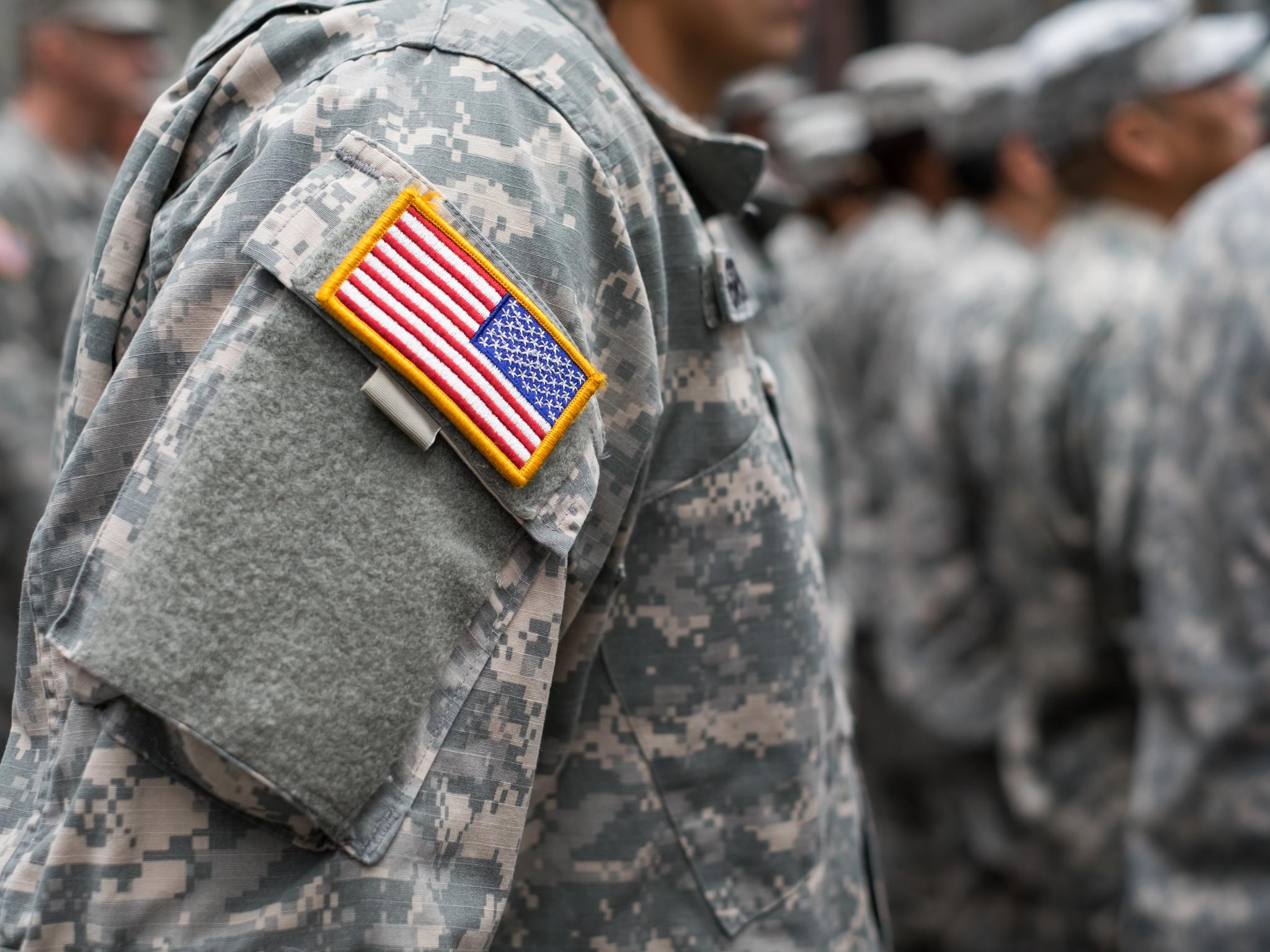
A bipartisan group of congress members is seeking support for a bill that would allow medical marijuana access to military veterans, which will be introduced in Congress soon. Sponsors of the measure sent a letter to congressional colleagues Wednesday urging support, reported Marijuana Moment.
The Veterans Equal Access Act, introduced by co-chairs of the Congressional Cannabis Caucus Reps. Earl Blumenauer (D-OR) and Brian Mast (R-FL), would allow VA doctors to recommend medical marijuana to their patients in states where it’s legal.
The proposal is supported by a variety of cannabis and veterans organizations including the Veterans Cannabis Coalition, NORML, Drug Policy Alliance, Iraq and Afghanistan Veterans of America (IVAV), U.S. Cannabis Council, Better Organizing to Win Legalization and National Cannabis Industry Association, and the Council for Federal Cannabis Regulation.
“Most states with state-legal medical cannabis programs require some sort of recommendation or approval from a medical provider for patients to enroll in the program. However, VA policy prevents VA physicians and care providers from any participation, including helping with the required paperwork or forms,” the letter reads.
“This forces veterans to seek care outside of the VA system to receive their medical cannabis recommendations, which can interrupt continuity of care, lead to mistakes or gaps in care, and require veterans to pay out of pocket for addition physician visits. VA physicians should not be denied the ability to offer a recommendation that they think may meet the needs of their patients.”
The main idea behind the bill is to allow VA doctors to discuss or recommend marijuana if it is in the best interest of their patients.
“The premise is very simple: this zero-score bill would help thousands of veterans and cost the VA no money.”
An analysis by the Congressional Budget Office on a 2020 version of the bill concludes that the government would not incur additional expenses to implement this bill.
Recent Similar Efforts
Last week, a recent discussion between Sen. Chuck Schumer (D-N.Y.) and Rep. Dave Joyce (R-OH) on bipartisan cannabis reform resulted in a possible omnibus bill that may contain more than just banking and expungement reforms.
During a preliminary conversation last Thursday at the International Cannabis Bar Association conference, Schumer and Joyce discussed combining two already existing bipartisan bills - the Secure and Fair Enforcement (SAFE) Banking Act, from Rep. Ed Perlmutter (D-CO) and the Harnessing Opportunities by Pursuing Expungement (HOPE) Act. The HOPE Act, sponsored by Joyce and Alexandria Ocasio-Cortez (D-NY) would help states expunge criminal records for non-violent cannabis convictions by setting up a State Expungement Opportunity Grant Program.
Other important proposals that cover veterans’ medical marijuana access, research expansion, cannabis industry access to Small Business Administration (SBA) programs, and broader drug sentencing, were also considered, according to multiple sources.
Opposition In The Ranks
Unfortunately, many politicians find fault in these proposals, which is likely the reason these important reforms have been stalled for so long. In a recent press conference in a roomful of veterans, Nebraska Gov. Pete Ricketts said there’s no evidence that medical cannabis works for PTSD after announcing that Nebraska will join 35 other states in a Governor’s Challenge to Prevent Suicide.
Nebraska's veterans have been working with mental health officials to set up a program that would improve the state’s outreach and treatment.
However, it seems that cannabis legalization will not be considered at all, given that Ricketts is not too keen on the idea, unlike his predecessor Bob Kerrey, now a U.S. Senator. Kerrey joined fellow veteran Montel Williams in 2010 in calling for medical marijuana to be dispensed at VA hospitals to treat PTSD.
The Progress Is Already Noticeable
Nevertheless, small steps forward are having an impact. Among the most important is a recent bill sponsored by Rep. Seth Moulton (D-MA), which would allow VA physicians to discuss MMJ treatment with veterans and protect those who are honest about their marijuana therapy history.
Under Moulton's bill, vets would not have to fear losing federal benefits for MMJ use and would be “encouraged” to talk about these types of treatments.
In addition, the VA confirmed in February that even though marijuana use is still federally illegal, “veteran participation in state marijuana programs does not affect eligibility for VA care and services.”
Latest Victory For Veterans: Landmark Toxic Exposure Bill
Veterans enjoyed another important victory on Thursday when the Senate overwhelmingly passed the bipartisan Sergeant First Class Heath Robinson Honoring Our PACT Act of 2022 – “the largest single bill in American history to address our service members’ exposure to burn pits and other toxic substances.”
“This bill will provide expanded access to health care and disability benefits for veterans harmed by certain toxic exposures, whether in the jungles of Vietnam or the mountains of Afghanistan,” President Joe Biden stated. “It will also let the Department of Veterans Affairs move more quickly and comprehensively in the future to determine if illnesses are related to military service, and it will offer critical support to survivors who were harmed by exposures, including from water contamination at Camp LeJeune. Importantly, the bill includes the tools and resources to ensure that the VA can effectively implement it.
“I urge the House to swiftly pass this bill so I can sign it into law right away,” Biden concluded.
Hopefully, veterans will soon also be celebrating access to cannabis via one bill or another.
Photo: Courtesy of Christopher Lyzcen via Shuttestock







